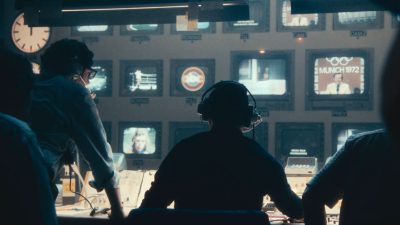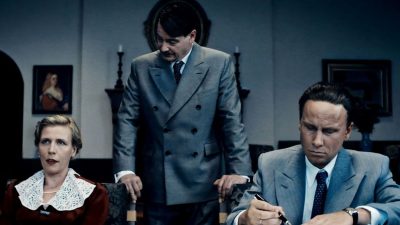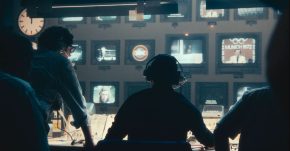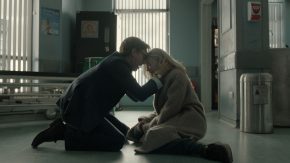Countless theories, different approaches, and readings keep circulating about how Bach should actually be played. According to legend, when the composer himself was asked about the secret of his keyboard technique, he explained that there was nothing especially difficult about it: one simply had to play the right notes at the right time, in the right manner.
Johann Sebastian Bach is the daily bread of young pianists just beginning their training; the small preludes, the two- and three-part inventions, and later, many of the preludes and fugues are part of their obligatory studies. After finishing with these – as András Schiff pointed out regretfully in his 1999 essay, Bach and the Piano – their relationship with Bach often comes to an end, and the German master’s works are rarely performed at their concerts, even though, as Schiff himself puts it:
“A musician’s life without Bach is like an actor’s without Shakespeare.”
We might think that it is precisely because of above mentioned early compulsory practice, the many theories and approaches, or the diversity of execution methods that have been piled onto Bach-playing which can be held accountable for this tendency. And if performers attempt to find their own paths alongside these, or even in opposition to them, the self-anointed priests of Bach are quick to look upon them with suspicion or antipathy.
And not a word has yet been said about historically informed performance, of which the aforementioned Schiff says that certain circles would consider it a crime to play Bach’s music on the modern piano instead of the harpsichord or the intimate tones of the clavichord. Incidentally, Schiff recently mentioned that modern symphony orchestras no longer dare play the Brandenburg Concerti, for instance; after all, not even the Vienna Philharmonic has had this best-known series of orchestral pieces by the brilliant German composer on its programme since 1976. We might add that Péter Tfirst, concertmaster of the Franz Liszt Chamber Orchestra, expressed similar fears about the playability of the baroque repertoire.
The Budapest Spring Festival offers two excellent pianists, who not only dare to play Bach, but are most skilled in doing so, in spite of the fact that neither of them became exclusively Bach specialists. At first glance, Ji-Yong Kim, known by his shorter stage-name, Ji, seems more like a pop star with his spiky hair and tattoos, but on 11 April, he will captivate his listeners at the Music Academy with Bach’s grandiose Goldberg Variations. Still only twenty-seven, this South Korean pianist played the Goldberg Variations on his debut album in January, 2018. Decades ago, it was also the first album of Glenn Gould, who wrote the following about the composition:
“[This music] has, then, unity through intuitive perception, unity born of craft and scrutiny, mellowed by mastery achieved, and revealed to us here, as so rarely in art, in the vision of subconscious design exulting upon a pinnacle of potency.”
Critics praised the vitality and intensity of Ji’s extravagant recording, and since we have quoted Gould, let’s quote Ji too, since he hasn’t shied away from describing his relationship with Bach either: “Why do I feel this inexplicable emotional connection to someone I have never met? […] Music, it’s a magical thing that allows everyone to connect with the authentic emotions that another soul chooses to express.”
Balázs Szokolay, the pianist performing two days later, needs no introduction to the Hungarian public; year by year he delights audiences with his imaginative recitals, memorable chamber concerts, and even as a soloist of concerti. For him too, Bach is daily food for the soul, and so it is no surprise that after his plan for autumn, 2016, during which he played the baroque master’s concerti for two, three and four pianos, he now continues by playing the seven solo concerti that Bach left for posterity. The fact is that Bach’s music works well on any instrument, something the composer himself proved by writing these concerti; after all, these pieces from his years spent at the helm of the Collegium Musicum are transcriptions for keyboard instruments of earlier concerti written for other instruments. The question of why Bach did not write completely new works, is something that music historians are still puzzling over today, but when we listen to Balázs Szokolay and the Franz Liszt Chamber Orchestra conducted by Péter Tfirst, we will probably not be occupied with this question.
Piano or harpsichord?
Bach’s manuscripts give little indication with regards to tempo, dynamics, articulation, phrasing, or ornamentation. Since we cannot reconstruct these, Schiff recommends we shouldn’t even try, since our audiences are made up of the people of today, and a performer is not playing for the public of Bach’s time. “A pianist should not be a slave, but rather a mediator and re-creator, almost the composer himself,” Schiff cautions performers. So does that mean we shouldn’t insist on the harpsichord and authentic instruments? Indeed we shouldn’t, so much so that one of the doyens of the historically informed trend, conductor Sir John Eliot Gardiner, says that the reason that Bach’s music is so brilliant is because it works just as well as on a didgeridoo and saxophone as it does on a baroque violin and oboe, and this variety is delightful. Bach’s keyboard concertos happen to be transcriptions of earlier pieces (violin concertos, oboe concertos, etc.), so the issues connected to the instrument and the timbre were probably not crucial to the composer, either.
Author: Endre Tóth
This article was originally published in the BSF Magazine.
April 11 | 7.30 pm
Liszt Academy – Grand Hall
J(i). S. Bach: Goldberg Variations
Ji’s piano recital
April 13 | 7.30 pm
Liszt Academy – Grand Hall
Balázs Szokolay (piano) and the Franz Liszt Chamber Orchestra



























Comments